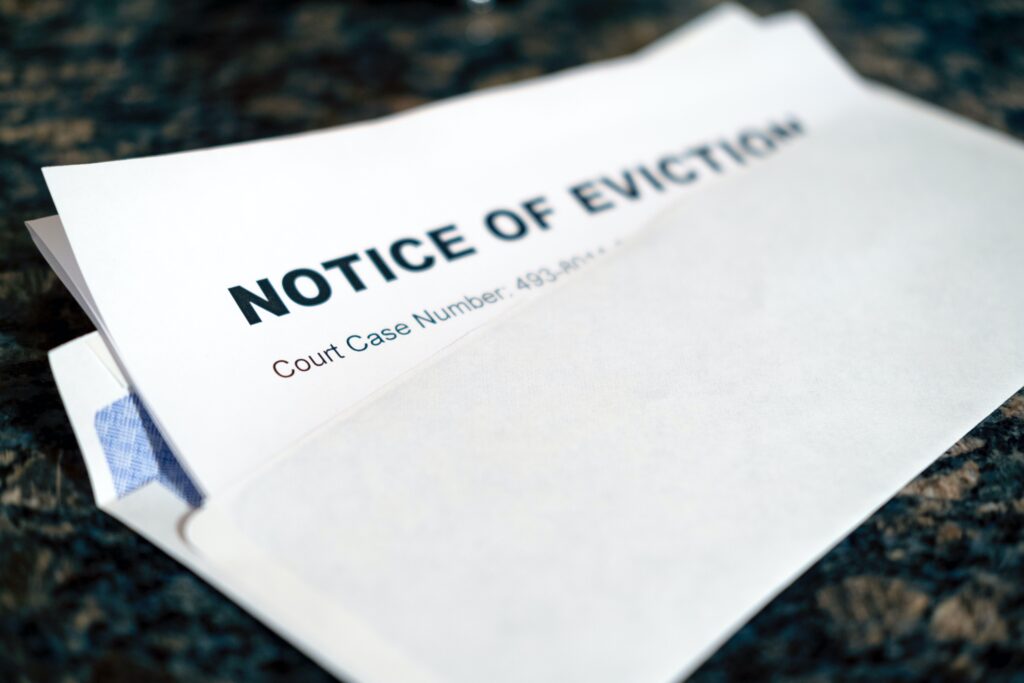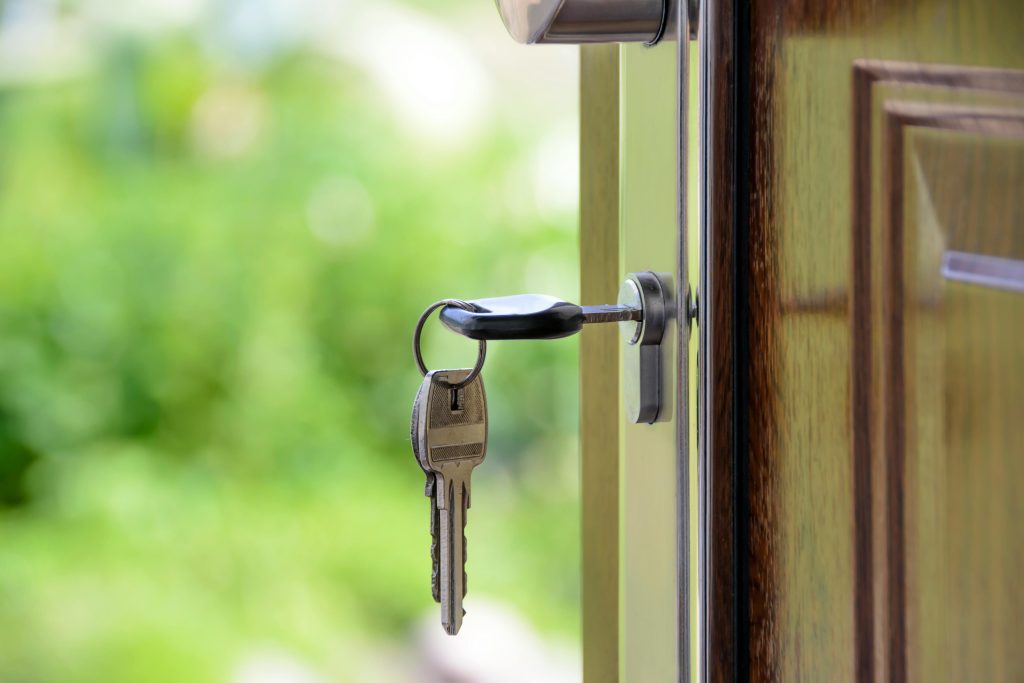An EWS1 certificate is a standardised form used to assess the fire safety of external wall systems on residential buildings. It was introduced in December 2019 following the Grenfell Tower tragedy to help mortgage lenders make informed decisions about the fire safety of high-rise properties.
The certificate provides information about the materials used in the external walls of a building and whether they pose a fire risk. It’s particularly important for buildings with cladding or balconies that contain combustible materials.
Here, we look at whether you need an EWS1 when buying or selling a property.
Understanding the EWS1 form
The EWS1 form is a single-page document that provides a summary of the fire risk assessment for a building’s external wall system. It’s not a safety certificate itself, but rather a way to report the findings of a fire safety assessment.
Sections of the EWS1 form
The form is divided into two main sections:
- Option A is used when the external wall materials are unlikely to support combustion.
- Option B is used when combustible materials are present in the external wall.
The form also includes details about the building, such as its address and a description of its external wall system.
Who completes the EWS1 Form?
Only qualified professionals can complete an EWS1 form. These include chartered fire engineers, chartered surveyors and other professionals with expertise in fire safety and external wall systems. The assessor must have relevant experience and qualifications recognised by a professional body.
When is an EWS1 certificate required?
You might need an EWS1 certificate if:
- Your building is over 18 metres tall or has more than six storeys
- Your building has cladding or balconies that contain combustible materials
- Your mortgage lender requests one as part of their valuation process
However, not all buildings that meet these criteria will need an EWS1. The requirement depends on the specific construction of the building and the materials used in its external walls. Currently, around 9% of mortgage applications require an EWS1 form.
EWS1 ratings
The EWS1 form provides a rating for the building based on the fire risk assessment:
- A1: External walls are unlikely to support combustion
- A2: Combustible materials are present but pose a low fire risk
- A3: Combustible materials are present and remedial works are required
- B1: Combustible materials are present but fire risk is sufficiently low
- B2: Combustible materials are present and an adequate standard of safety is not achieved
These ratings help lenders, buyers and building owners understand the fire safety status of a property’s external wall system and whether any actions are needed to improve safety.
How to check if your building needs an EWS1 certificate
To determine if your building needs an EWS1 certificate, first, check the height of your building. If it’s over 18 metres or has more than six storeys, it might need an EWS1.
Look at the external walls and balconies. If they contain combustible materials, an EWS1 might be required. Contact your building owner or management company. They should know if an EWS1 has already been carried out. Speak to your mortgage lender, as they can advise if they require an EWS1 for your property.
If you’re a leaseholder, you can ask your freeholder or management company if the building already has an EWS1 certificate. They should be able to provide you with a copy if one exists.
How to Obtain an EWS1 Certificate
If you need an EWS1 certificate contact your building owner or management company, as they’re responsible for arranging the assessment. They’ll need to hire a qualified professional to carry out the assessment, with the assessor inspecting the building and completing the EWS1 form.
The cost of obtaining an EWS1 certificate can vary widely, from a few thousand pounds to tens of thousands, depending on the size and complexity of the building.
Submitting the EWS1 Form
Once completed, the EWS1 form should be submitted to the relevant parties, which may include:
- The building owner or management company
- Mortgage lenders
- Potential buyers (if you’re selling the property)
Make sure to keep a copy of the form for your own records, as you may need to reference it in future property transactions or discussions with your freeholder.
Timeline for certification
The time it takes to get an EWS1 certificate can vary. In some cases, it might take just a few weeks. Due to high demand and a shortage of qualified assessors, it can sometimes take several months.
Validity and renewal of EWS1 certificates
An EWS1 certificate is valid for five years. After this time, or if significant changes are made to the external wall system, a new assessment will be needed.
Common issues with EWS1 certificates
Some common challenges include:
- Long waiting times due to a shortage of qualified assessors
- High costs, especially for larger or more complex buildings
- Difficulty getting freeholders to arrange assessments
- Some mortgage lenders requiring EWS1 forms for buildings that don’t technically need them
Issues like these can cause significant delays and stress for homeowners trying to sell or remortgage their properties, often leading to sales falling through or mortgage applications being rejected.
Alternatives if you can’t obtain an EWS1 certificate
If you can’t get an EWS1 certificate consider other types of fire safety assessments that might satisfy your mortgage lender. Alternatively, you can look for lenders who don’t require EWS1 certificates for your type of property. Another option is to consider selling to a cash buyer who doesn’t need mortgage lender approval (more on that shortly).
Government support for unsafe cladding
The UK government has introduced measures to help with the cost of removing unsafe cladding. These include:
- A £5 billion fund to remove unsafe cladding from high-rise buildings
- A loan scheme for leaseholders in buildings between 11 and 18 metres tall
- Protections to ensure leaseholders don’t pay for cladding removal on buildings over 18 metres
- A Professional Indemnity Insurance scheme for assessors was also launched in September 2022
Such initiatives aim to make properties safer and help those struggling to sell or remortgage due to cladding issues.
EWS1 certificate and selling your home
For many people living in flats, EWS1 forms have become common. Here’s a rundown on what you need when it comes to selling your home and an EWS1 form.
Importance of EWS1 in property transactions
An EWS1 certificate can be essential when selling your home, especially if it’s in a high-rise building. Many buyers and their mortgage lenders will require an EWS1 before proceeding.
Having an EWS1 certificate can:
- Speed up the selling process
- Reassure potential buyers about fire safety
- Make it easier for buyers to secure mortgages
Preparing your property for sale with an EWS1 certificate
If you’re planning to sell, check if your building has a valid EWS1 certificate. If not, speak to your freeholder about getting one. Be prepared to share the EWS1 certificate with potential buyers. If your building has a poor EWS1 rating, find out about any planned remedial work
How Property Rescue can help
If you’re struggling to sell your property due to EWS1 or cladding issues, Property Rescue might be able to help. We offer a range of services for homeowners in difficult situations. While we can’t buy properties with dangerous cladding, we do buy homes in a range of conditions.
Get in touch with us to discuss your situation or get a free, no-obligation quote to see how much your home is worth.. We’ll review your case and see if we can offer a way forward. Remember that every property is unique, and we’ll look at the specifics of your situation regarding the property sale and its relation to cladding.
Resources and support
EWS1 can be a confusing topic for many. Fortunately, there’s plenty of information and support out there designed to make the process a little bit easier. Check out the:
- Royal Institution of Chartered Surveyors (RICS) website for EWS1 guidance
- UK Government’s advice on building safety
- Leasehold Knowledge Partnership for advice on leasehold issues
- Download the EWS1 form
Contact Information for Assistance
For help with the EWS1 process:
- RICS Fire Safety Helpline: 020 7219 2043
- Leasehold Advisory Service: 020 7832 2500
- Your local Citizens Advice Bureau
Remember that the EWS1 process can be complex. Don’t hesitate to seek professional advice if you’re unsure about any aspect of fire safety assessments or property transactions.
Summary: EWS1 form
EWS1 certificates are crucial for many flat sales, especially in high-rise buildings. While they can present challenges, understanding the process can help smooth your property transaction. If you’re struggling to sell due to EWS1 issues, Property Rescue may offer solutions. Always seek professional advice and explore all options when dealing with EWS1-related complications.








